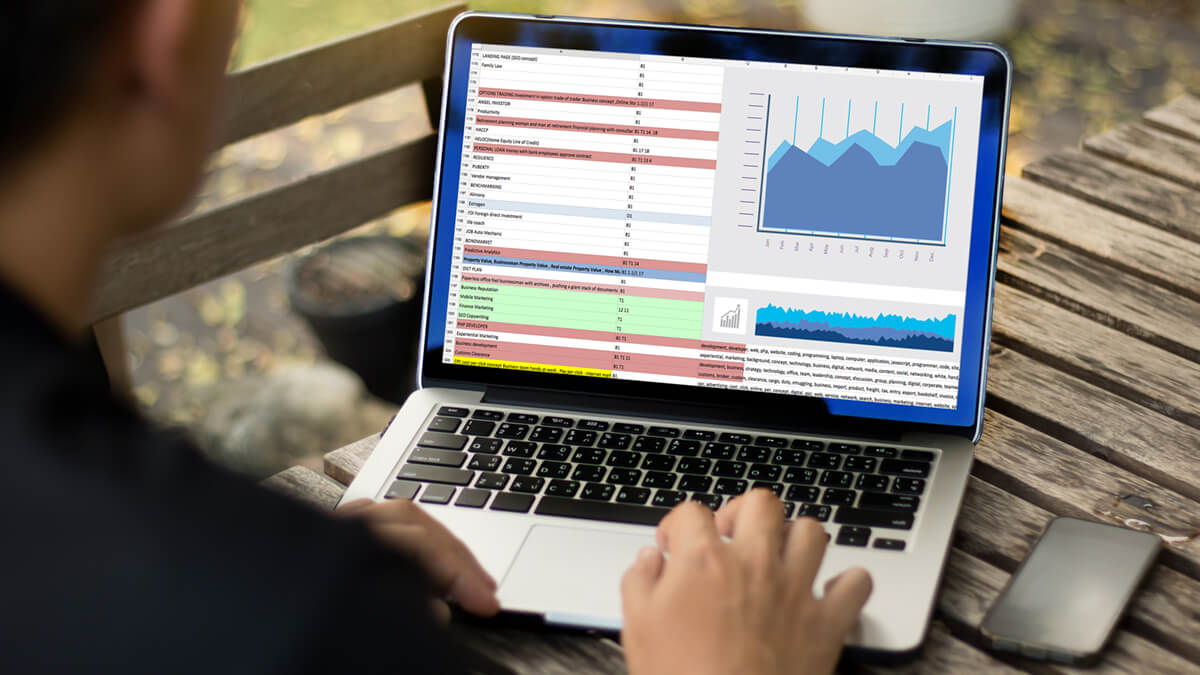Crime statistics aren’t new. For years, police departments, states, and the U.S. Department of Justice have gathered and reported statistics on a wide variety of crimes. But in a world where data analytics is changing everything from political campaigns to Major League Baseball, the data we have on crime can be used for a lot more than generating statistics.
If you’re currently working a criminal justice job or if you’re considering starting a criminal justice career, data is likely to be a regular component in the coming years. That’s because an increasing number of jurisdictions are turning to data analytics. In fact, as of 2016, 120 jurisdictions—covering over 91 million people—had signed onto the Data-Driven Justice Initiative, an ambitious U.S. Department of Justice program designed to increase the use of data in multiple areas of criminal justice.1
Needless to say, if you want to succeed in a career in criminal justice, you need to understand the ways law enforcement, courts, and correctional facilities are using data to improve the system.
How It Works
Data analytics works by bringing together large amounts of data in a variety of ways in an attempt to uncover previously unseen patterns. Instead of working with one or two data points, data analytics uses the power of computer processing to bring together and correlate dozens or even hundreds of data points. In the case of the criminal justice system, data analysts can correlate criminal justice data (crime rates, recidivism rates, drug conviction numbers, etc.) with data from other sources (poverty rates, educational attainment, work history, etc.) to find patterns that can help improve the quality and efficiency of the justice system.
What It Can Achieve
Criminal justice data is making a difference in a number of areas. These include:
- Response Planning: By analyzing law enforcement decisions and outcomes when responding to thousands of crimes, criminal justice professionals can determine what response methods work best for what types of situations. With this information, law enforcement personnel can make more optimal decisions when responding to criminal acts.
- Crime Prevention: By bringing together crime data with data reflecting truancy rates, unemployment rates, incidences of vandalism, etc., law enforcement organizations can uncover both large and subtle correlations affecting crime. When these data points are geotagged, law enforcement can narrow the data further and use it to predict when and where certain types of crime are most likely to occur. In real-world usage, such data analytics have proven quite effective. For example, during a Manchester, New Hampshire, pilot program, local police used advanced data analysis to institute preventative measures that resulted in a 12% reduction in robberies, a 21% reduction in burglaries, and a 32% reduction in thefts from motor vehicles.2
- Criminal Identification: Thanks to data analytics, law enforcement agencies from across the nation can input data from crime scenes into databases designed to find connections between cases. This can help law enforcement create profiles of specific criminals and narrow suspect lists.
- Risk Assessment: In her 2013 TED Talk, former New Jersey attorney general, Anne Milgram, discussed how she has helped develop a data-driven system for determining whether a convicted criminal is likely or unlikely to pose a threat to public safety if released from jail or given probation.3 This system can help judges and parole boards make better risk assessments.
How You Can Learn More
Whether you want a successful career in law enforcement, criminology, the court systems, corrections, or in any other career involving criminal justice, a criminal justice degree can help you gain the knowledge you need to get ahead. Depending on where you are in your career, either a BS in Criminal Justice or an MS in Criminal Justice can be the step forward you need. The good news is, taking that step doesn’t have to be as difficult as you might think.
Thanks to online learning, you can now earn a bachelor’s in criminal justice or a master’s in criminal justice right from home. Plus, online education gives you the power to choose what time of day you attend class. This level of convenience and flexibility makes it possible to be a criminal justice major or graduate student while continuing to work full time and/or take care of your other responsibilities. Additionally, students choosing to earn their MS in Criminal Justice from Walden University and are seeking to specialize in Public Management and Leadership also have the option choose from a course-based or competency-based learning format. The competency-based format allows students to progress at their own pace and be measured by a variety of assessments, versus the standard course-based learning format.
Data analytics is changing criminal justice for the better. With a criminal justice degree from an online university, you too can have the opportunity to improve criminal justice.
Walden University is an accredited institution offering BS in Criminal Justice and MS in Criminal Justice degree programs online. Expand your career options and earn your degree in a convenient, flexible format that fits your busy life.
1Source: www.justice.gov/archives/opa/blog/growing-number-communities-are-using-data-improve-policing-and-criminal-justice
2Source: www.ibmbigdatahub.com/blog/6-simple-ways-help-fight-crime-analytics
3Source: www.ted.com/talks/anne_milgram_why_smart_statistics_are_the_key_to_fighting_crime#t-502254
Walden University is accredited by The Higher Learning Commission, www.hlcommission.org.




